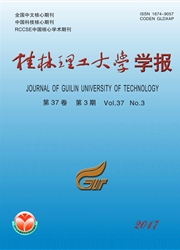

 中文摘要:
中文摘要:
试验证实水化学状态变化对于以蒙脱石为主要矿物成分的粘性土的力学特性存在明显影响,但对于其他的普通粘性土却缺乏类似的研究。本文以普通粘性土(粘土矿物成分为高岭石、伊利石和蛭石)为研究对象,利用直接剪切试验研究了不同浓度氯化钠溶液饱和粘性土的强度特性,得出了以下结论:孔隙水化学状态的改变对粘性土强度有明显影响,在低竖向压力下,土体强度随盐溶液浓度的增大而减小;而在相对较高竖向压力下,土体强度随盐溶液浓度变化不大;对于该类粘性土,盐溶液浓度的提高会降低粘聚力,但对内摩擦角影响不大。该试验结果说明盐溶液产生的孔隙水化学作用除了减小双电层厚度还会改变粘性土的孔隙状态和结构,从而改变剪切过程中的变形破坏形式及强度特性。也就是说,普通粘性土对水化学状态改变展现出的强度变化规律也可以采用吸附电子双层理论来进行解释,但是必须考虑其对土体组构的影响。
 英文摘要:
英文摘要:
It is demonstrated that the chemical state of pore solution affect the mechanical characteristics of clay, in which mineral is mainly smectite. However, few researches performed for general clay soil. In this pa-per, clay soil from Yaoshan of Guilin, in which mineral compositions are kaolinite, vermiculite and illite, was selected to study the effect of chemical state of pore solution on mechanical strength. The experimental result shows that chemical state of pore solution has significantly influence on strength for testing clay soil at relative low vertical stress, but negligible influence at relative high vertical stress. In addition, with the increasing of salt concentration, the cohesion decreases, while the frication angle almost keeps constant. It is the reason that exposing clay soil to salt solution could change the deformation and broken mode by increasing the pore void and changing the structure of pore. In other words, electronic double layer adsorption theory can be employed to ex-plain well the changing rule of strength for testing clay soil, but the variation of fabric structure affected by chemical state of pore solution should be considered at the same time.
 同期刊论文项目
同期刊论文项目
 同项目期刊论文
同项目期刊论文
 期刊信息
期刊信息
